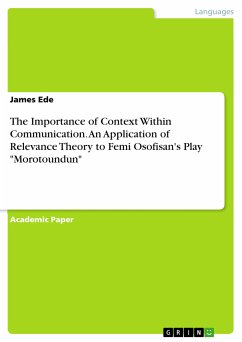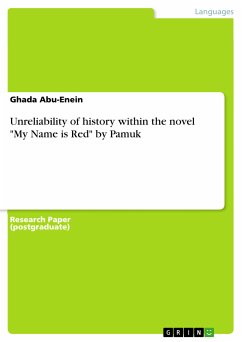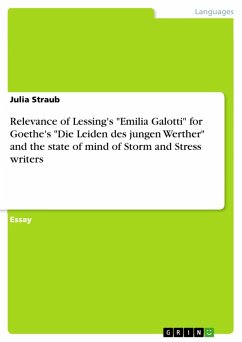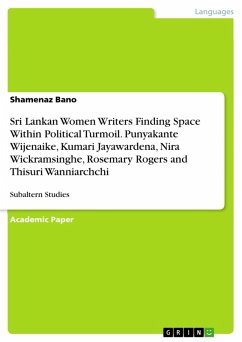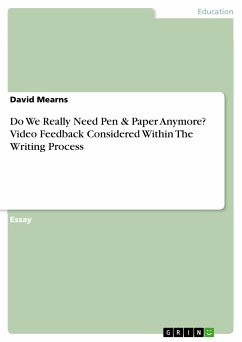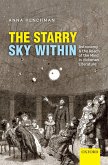Academic Paper from the year 2018 in the subject Literature - Africa, grade: 1,3, University of Nigeria (Department of English and Literary Studie), course: Pragmatics, language: English, abstract: This work is concerned with the application of Relevance Theory within the context of the play "Morotoundun" by Nigerian playwright Femi Osofisan. In Pragmatics, context is paramount. In other words, an audience is constrained to understand the speaker's intention by taking cognisance of the context in which utterances are expressed. One of those pragmatic theories of context interpretations is Relevance Theory. Within the purview of this theory, the cognitive domain of the audience is taken under advisement. In other words: in order to understand utterances of a speaker from within his context, the audience has to make use of their cognition in order to achieve optimal communicative relevance. Therefore, Relevance Theory is applied to the play by analysing the conversations of the characters therein based on their contexts. During that process, the work also quickly touches upon the question of the place of women in African Literature and the function of theatre as a tool of a potential proletarian revolution. The analysis does establish that the characters' dialogues achieve communicative relevance by the cognitive ability of the reader to process contextual utterances.
Dieser Download kann aus rechtlichen Gründen nur mit Rechnungsadresse in A, B, BG, CY, CZ, D, DK, EW, E, FIN, F, GR, HR, H, IRL, I, LT, L, LR, M, NL, PL, P, R, S, SLO, SK ausgeliefert werden.

